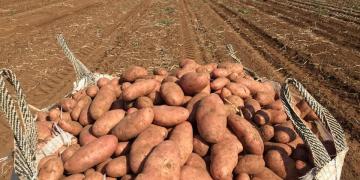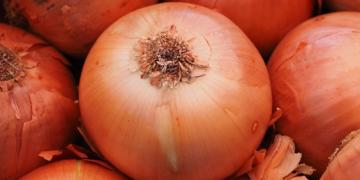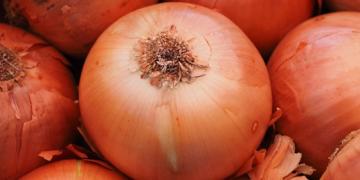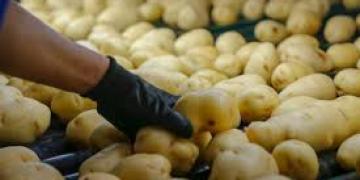Important potato fungicide Mancozeb to be banned in Canada?
Health Canada’s leading pesticide regulator is taking another look at its decision to ban a popular fungicide called Mancozeb that is used by many fruit and vegetable growers after the agency admitted its initial review banning the chemical ...
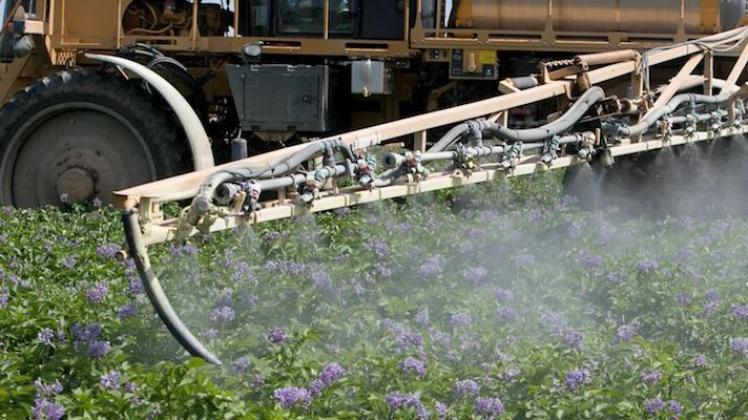
Multiple industry sources have confirmed officials from the Pest Management Regulatory Agency (PMRA) told them in a meeting on Friday that it was restarting its full review of fungicide products, used to treat fungus outbreaks in many fruit and vegetable crops, containing the chemical ingredient Mancozeb.
“I think at the end of the day, they looked at the submissions that they had made and decided that they didn’t meet their standard of performance,” Craig Hunter, who up until his retirement in June worked as a scientist on the pesticide file for the Ontario Fruit and Vegetable Growers Association, told iPolitics. The new review, he said, is expected to take several years.
Health Canada did not respond by press time to questions from iPolitics about the Mancozeb decision.
In June, the PMRA had said it was phasing out the product because of “unacceptable risks to human health.” All uses would be banned, with the exception of treatments for potato crops, the agency said in its final decision.
That decision caught industry by surprise because the agency’s initial, routine re-evaluation, which began in 2013, had was solely focused on apples, pears, grapes, greenhouse tomatoes and potatoes. No other industries or crops were named.
“In this case, I think they went to their lawyer and the lawyer said because they had not mentioned in the 2013 document that they proposed to eliminate all uses. They then were consulting on that,” he said.
“And then when the final document came out and it eliminated all uses except for potatoes, that was patently unfair to all the commodity groups who never really had a chance to be consulted because they assumed that they were going to be excluded from use.”
The Canadian Horticulture Council echoed those concerns in a letter to federal Health Minister Ginette Petitpas Taylor dated July 5. “As many of the uses on other crops were apparently preserved, representatives from those commodities did not find the need to respond,” the letter reads.
“Occupational exposure, not previously a risk, is now cited as justification for cancellation on all horticultural crops with the exception of potatoes,” the Council continued. “Uses newly cancelled were on crops such as: onions, celery, carrots, peppers, cucurbits, asparagus, sugar beets, and field tomatoes. Many of these crops (e.g. onions and sugar beets) have similar use and exposure risks as potatoes, and yet this was not considered.”
The decision to cancel Mancozeb, and its sister chemical Metiram, will “seriously limit effective disease control options for farmers,” the Council wrote. PMRA’s decision to phase out the use of Metiram over the next three years stands and is not subject to another review.
Fungicides containing the chemicals are often used in conjunction with other products, many of which have already started developing disease resistance, Hunter explained. Other crops, like asparagus and carrots, have no effective alternatives to deal with disease.
Industry, Hunter said, is concerned the PMRA has been “cherry-picking” data. He said the PMRA’s decision to ban the use and deregister Mancozeb and Metiram was not based on any Canadian data and relied heavily on one American study.
“In both cases, we had grave concerns about the way the job was done and the data that they used and the way they used the data and the assumptions that they made,” Hunter said. “When this comes back out again, after it’s rewritten, unless those concerns are addressed then we will have to fight the fight again.
“We have big concerns that they’re cherry-picking numbers, not even Canadian numbers, and basing a monumental decision on that. And, that’s just bad science.”
The product is still available for use in the United States and the European Union, he added, where no concerns have been raised.
The dispute between industry and the PMRA over Mancozeb comes at the same time the agency has proposed a ban on all outdoor uses of three nicotine-based pesticides, called neonicotinoids, because of risks posed to aquatic insects like midges and mayflies. The pesticides are widely used within the grain industry, representatives of which argue they will be forced to used more harmful products if the ban goes through because of a lack of alternatives.
Those proposed bans are currently subject to a public consultation.
The PMRA is currently facing a court challenge from several environmental groups, including Ontario Nature and the David Suzuki Foundation, that is focused on neonicotinoid pesticides. Environmentalists want the product banned.
Fuente: ipolitics.ca

